REVIEW: The Herd at Tarragon Theatre
After a start-and-stop season, Tarragon Theatre is finishing the year with a fittingly chaotic bang: enter The Herd, a story of post-apocalyptic recovery and resilience.
Twin female bison calves are born in a herd belonging to a northern First Nation, and they are white. Bison existing at all in the 21st century is miraculous enough after their annihilation at colonial hands, but white calves? That’s a big deal in Indigenous spirituality — in Christian terms, think “second coming” level of big deal. Are these calves the fulfillment of a prophecy foretold by our ancestors or are they just remnants of cow genes from a selective breeding process?
In this loose, Indigenous take on Ibsen’s Enemy of the People, Cree playwright Kenneth T. Williams’ The Herd looks at the intersections between spirituality and science, traditional ways of life and technology, and the divide between urban and rural Indigenous people, capitalism, new-agers, and the maligned pretendian. Williams worked as a reporter for APTN before becoming the first Indigenous writer to earn an MFA in playwriting from the University of Alberta, where he now teaches in the drama department.
With the potential miracle in their herd, the endearing Chief Michael “Baby Pete” Brokenhorn (Dylan Thomas-Bouchier) invites vlogger and possible pretendian Coyote Jackson (Todd Houseman) to help get the word out about the calves and, ideally, leverage this situation to help call attention to the dire drinking water situation in their community. Of course it all backfires spectacularly when Coyote goes viral and the surrounding land and community is overrun by new-age hippies who drain their limited resources and cause stress on the herd. His increase in followers and public profile brings about an unexpected level of scrutiny that throws Coyote’s Indigeneity into question. Is he a pretendian, a colonizer cosplaying as a Native and further depleting resources, or is he Métis, isolated from community, and without record because of colonial practices left to rely on family stories? Rightly or wrongly, everyone’s got an opinion on him when he gets called out.
Through director Tara Beagan’s sense of humour and devotion to exposing uncomfortable realities, and Andy Moro’s outstanding set and video design, we the audience see “behind the camera,” while Coyote’s carefully practiced series of poses and gestures streamed out into the cyber world are projected onto screens upstage. Coyote Jackson’s true self is revealed: a goof with a selfie stick who understands his angles but not the responsibility of being a public person. I’m a sucker for incorporating digital technology and social media into theatre when it’s used as more than just an aesthetic choice. In this case, it’s another reminder of how technology can skew our perception of reality, and how easy it is to mislead with a tight camera angle.
Vanessa Brokenhorn (Tai Amy Grauman), herd veterinarian and geneticist, is arguably Williams’ most complex character — or the one shouldering the heaviest burden fighting to keep the herd safe — and sadly the least developed. Grauman does a wonderful job making this haunted woman believable, but I want to know more about why specifically she is so haunted. Her connection with the Rez, for instance, and why she feels she’s an outsider in her home, and her spirituality; the exposition feels too superficial and glossed over in contrast with her significance to the story.
Of course, no story about bison is complete without European, capitalist interests – there’s a long history of bison being driven to extinction at the hands of European colonists to force First Nations into the reservation system, and then subsequent economic abuse. This sacred and revered creature is intertwined with capitalism and colonial forces. The choice of an Irish company to be invested in the herd gets a chef’s kiss from me. And Aislinn Kennedy (Cheyenne Scott) as company liaison is a delightfully messy frenemy (or enemy, depending on your perspective). Can joining the system to beat the system ever work? It’s a thing that Irish and Indigenous people have been dabbling in for centuries with precious little to show for it, so my guess is “no,” but that doesn’t stop us from continuing to try. And I suspect Aislinn is continuing the tradition of trying, though she might be playing a long con, gaining community trust only to inflict further colonial exploitation. Swinging between seemingly genuine affection for Auntie Sheila and the singular desire to produce sacrilicious bison steaks for Europeans seeking an authentic American Indian, wild west experience, her motives and relationship to power are obscured by Ireland’s own history of colonization.
Finally, a special mention needs to go to Shyanne Duquette, The Herd’s apprentice director. Duquette stepped in at the last minute to play Sheila Kennedy after the original actor fell ill before the Citadel Theatre run, and she’s settled into the role beautifully. Had no one told me, I would have had no idea that she isn’t primarily a stage performer. Duquette bravely channeled her inner Auntie and brought some Elder wisdom to the stage.
At times characters and conflicts in The Herd feel underdeveloped: the central theme of prophecy and spirituality vs. science, for instance, left me wanting more nuance. Assuming there is a higher power, and we are created by that higher power, does it really matter whether or not the birth of twin white bison is due to a bit of bovine DNA? And what are the repercussions of being able to fulfill prophecy on demand? The latter is addressed briefly as the drama reaches its climax, however they are both such heady questions I felt they deserved more attention. This, however, is a relatively minor complaint; Williams’ strength is in his overall sensitivity and affection for the folly that is being human in this messed up world. There is no good or evil: each character is trying to meet their needs, and doing the best they can, even when they make terrible choices. Everyone subjects both the literal herd and their metaphorical herds (communities and nationhoods, both sacred and profane) to complex and unpredictable consequences of their actions.
Williams and The Herd ask a lot of questions without providing any answers. That uncertainty is the space where Beagan and team shine: so despite what is missing in the script, The Herd is a joy to watch. Life is messy, and there isn’t one right way to go about anything — especially whilst recovering from an apocalypse. Ask questions, keep your wits about you, and remember we are all interconnected, so try to do the rightest thing (like the anti-colonial episode of Ted Lasso commands). Ok, maybe there is one right thing: don’t let crowds of new-age hippies near the Rez.
The Herd runs at Tarragon Theatre through June 12. Tickets are available here.



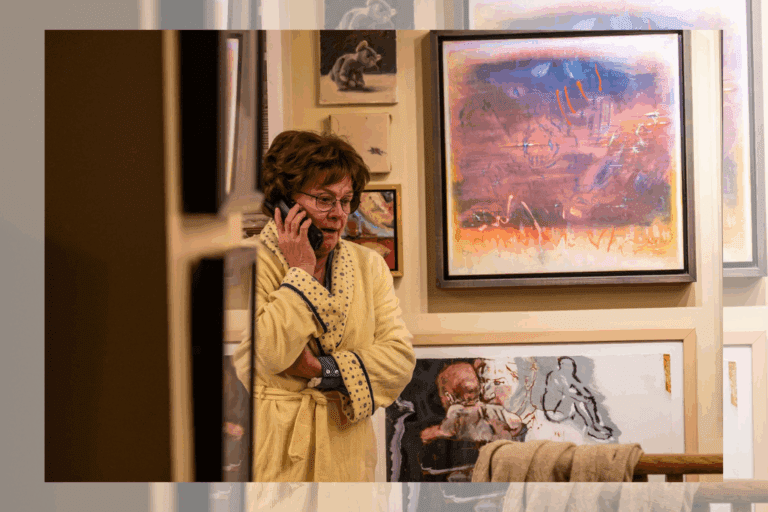
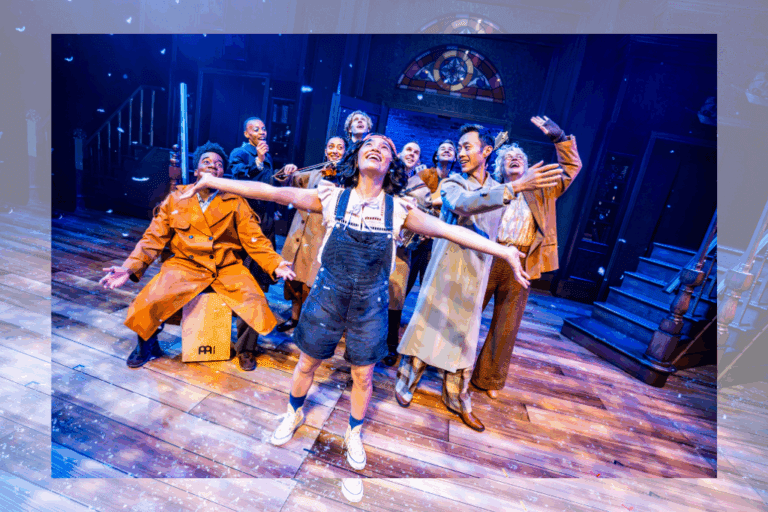

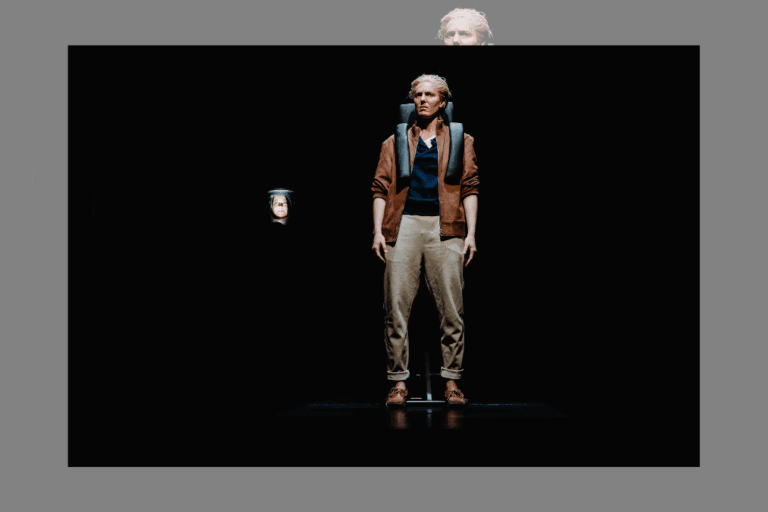
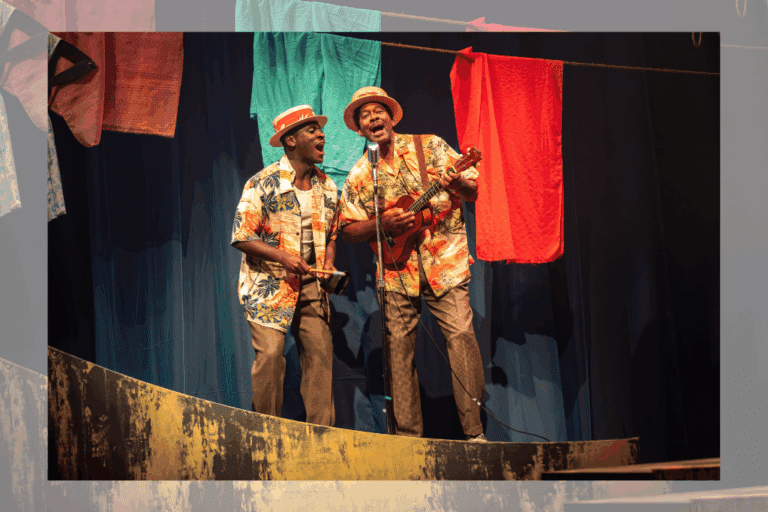
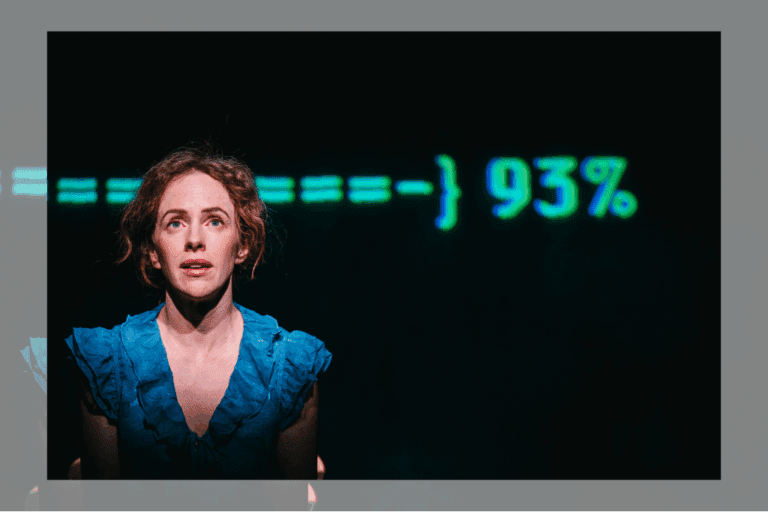

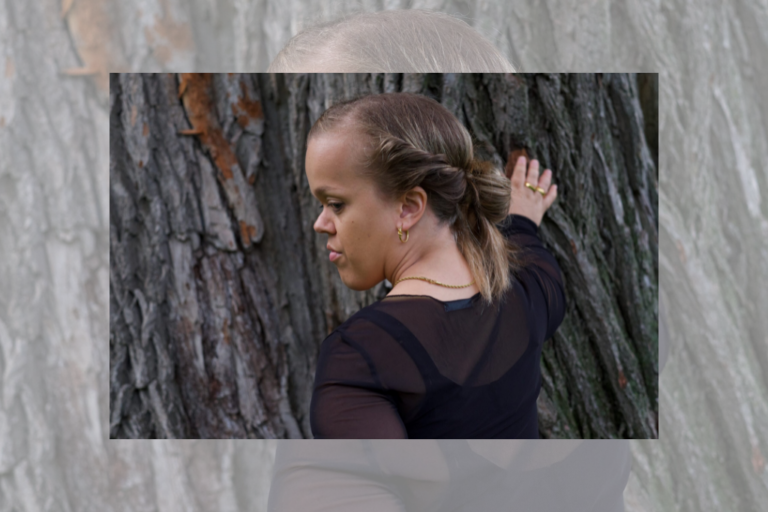
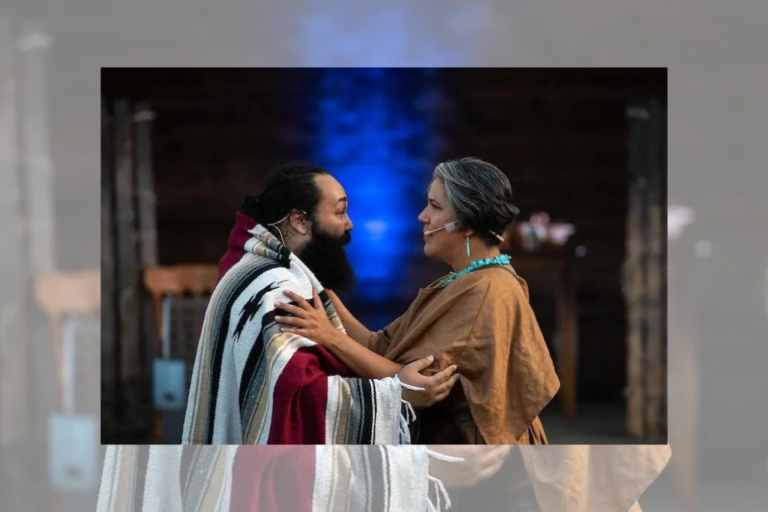
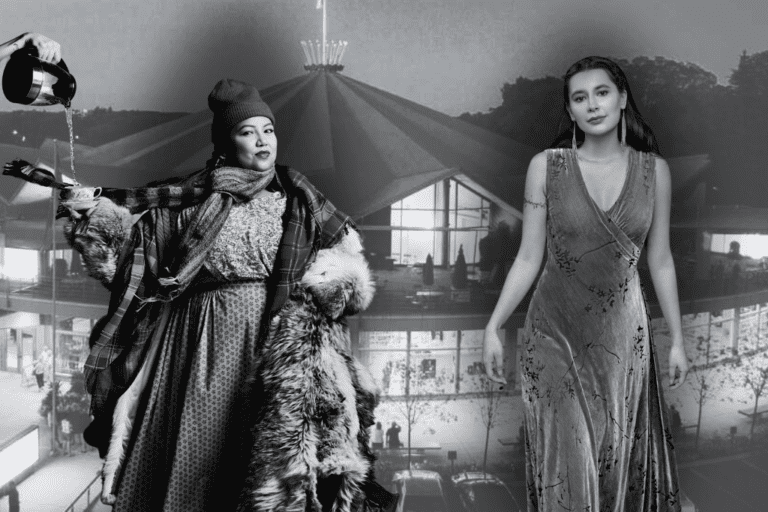
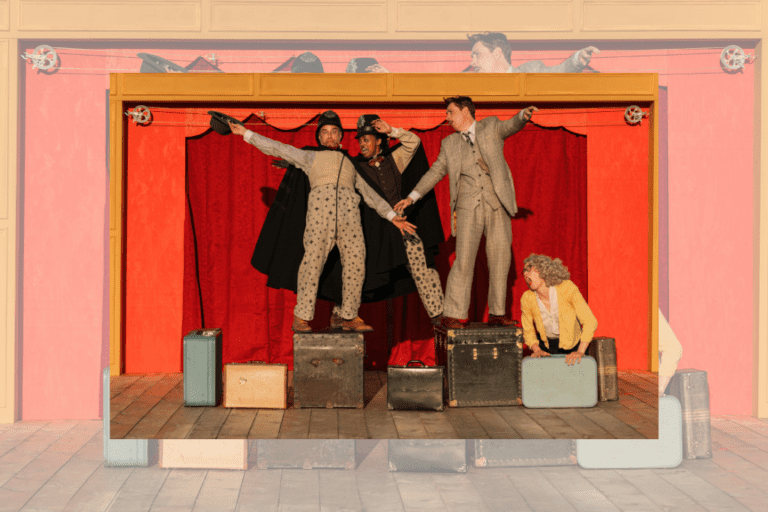
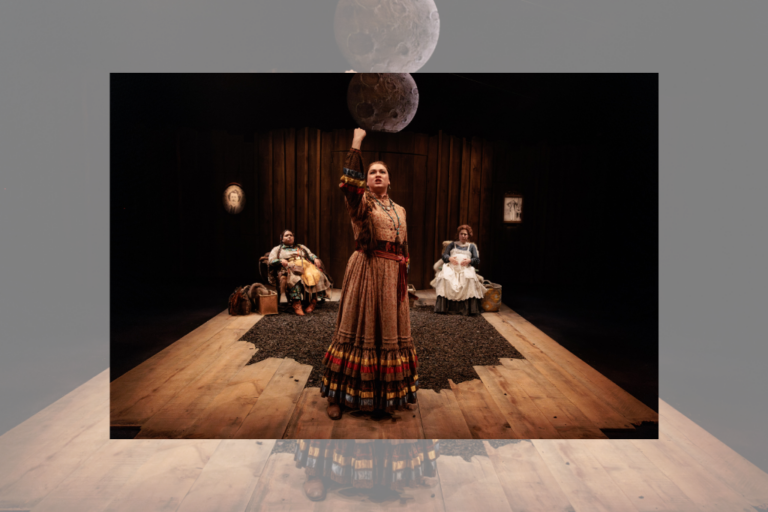
Comments